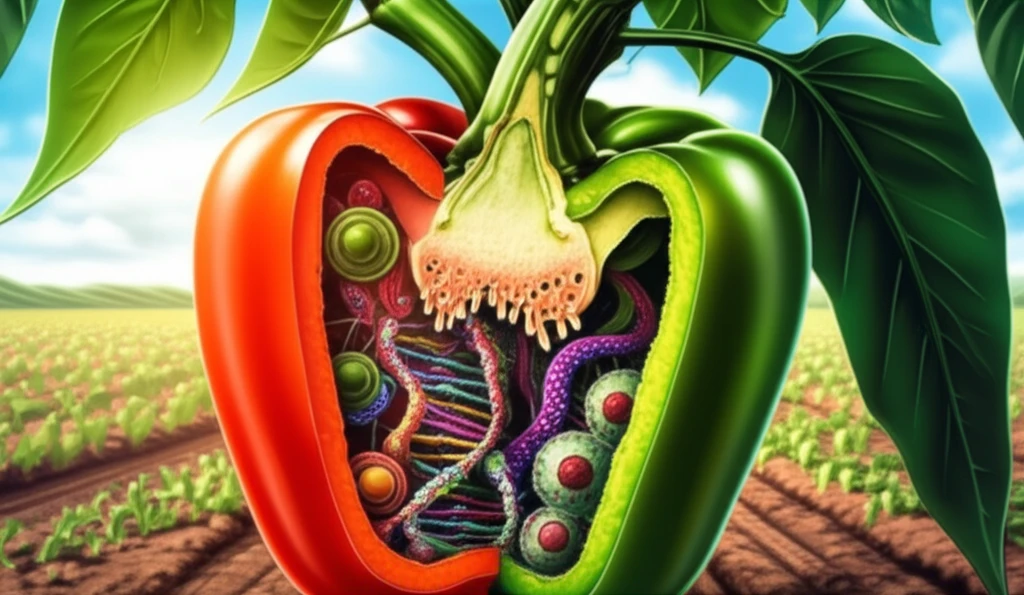
Pepper's Secret: Unlocking the Mystery of Male Sterility and Boosting Crop Yields
"How breakthroughs in plant genetics are transforming pepper farming and crop production."
Imagine a world where farmers could consistently produce higher yields of crops, reducing waste and maximizing resources. This vision is becoming a reality, thanks to advancements in plant genetics. One of the most promising areas of research involves understanding and manipulating male sterility in plants, a phenomenon where plants are unable to produce viable pollen.
This seemingly simple concept has profound implications for agriculture. By controlling male sterility, scientists can develop more efficient breeding programs, create hybrid varieties with superior traits, and ultimately increase crop productivity. This article delves into recent research on male sterility in pepper plants, revealing the intricate biological processes involved and the exciting possibilities they offer.
The journey of scientific discovery is ongoing, and the exploration of male sterility in plants is an excellent example of how complex biological systems can be harnessed to address pressing global challenges such as food security. From the cellular level to the field, the revelations from this research promise to reshape agricultural practices and enhance the sustainability of food production.
Unveiling the Secrets of Pepper's Genetic Make-Up and Male Sterility

Recent studies have focused on the genetic mechanisms behind male sterility in pepper plants. The research identified a novel genetic male sterility trait in pepper that disrupts the plant's ability to produce viable pollen. This trait is inherited in a recessive manner, meaning that both parents must carry the gene for the offspring to exhibit male sterility. The researchers delved into the cellular processes affected by this genetic trait to understand how it leads to the production of sterile pollen.
- Recessive Gene: The male sterility trait is caused by a recessive gene, meaning both parents must carry the gene for male sterility to be expressed.
- Cellular Disruption: The abortion of microspores occurs during the telophase stage of meiosis, preventing normal pollen development.
- Excessive Vacuolation: The microspore mother cells experience excessive vacuolation, a process that leads to cell disintegration.
- Pollen Abortion: This cellular disruption leads to the complete abortion of pollen grains, preventing the plant from self-pollinating.
The Future of Pepper Farming and Beyond
The research into male sterility in pepper represents a significant step forward in agricultural science. It provides a solid foundation for innovative breeding strategies and a pathway to increase yields, improve crop quality, and promote sustainable farming. As we continue to unlock the secrets of plant genetics, we move closer to a future where our food production systems are more resilient, efficient, and capable of feeding a growing population.
